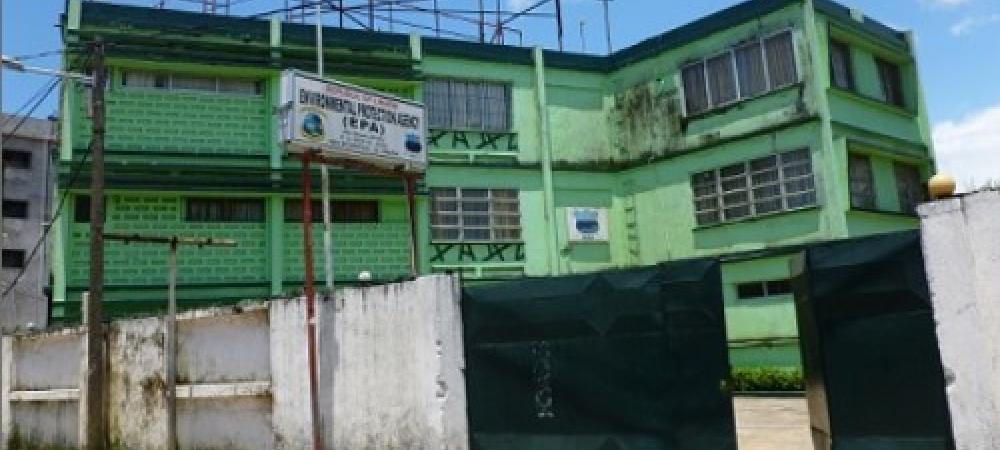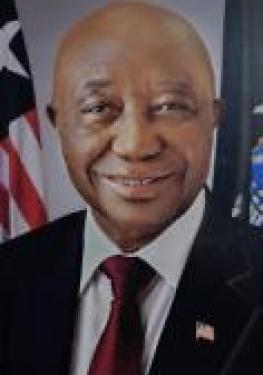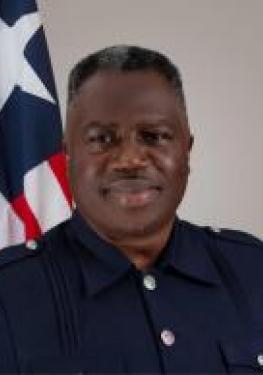
The Environmental Protection Agency (EPA) provides clarity on two separate fines imposed on the Liberia Electricity Corporation (LEC) and the Management of York Trading Incorporated, for breaching the environmental laws of Liberia, respectively.
The EPA separately fines York Trading Inc. US$1,400 for importing hazardous chemicals into the country and the LEC US$10,000 for Spillers Liability, which prohibits discharge of hazardous substances into the environment. Violator is held under EPA’s polluter pay principle due to the direct impact on the environment. The clarification comes in the wake of claims in the public that authorities at the EPA are partial in imposing fines on institutions that violate environmental laws of the country.
But EPA Acting Executive Director Randall Dobayou refutes the claims. “Let it firstly be stated that LEC did not bring in any chemical as falsely stated in some quarters. LEC was rather fined because of the transformer waste which they handled carelessly, Mr. Dobayou explains.
He continues that in January 2019, the Management of the Liberia Electricity Corporation requested sought intervention from EPA regarding overwhelming waste at the corporation’s facility on Bushrod Island.
The Acting EPA boss said in response to the request, a technical team consisting of relevant staff of the EPA conducted a thorough inspection of the LEC’s facility and identified various waste stream (faulty transformers, used HFO and LFO, asbestos, metal scraps and other general wastes).
Speaking to this paper Thursday, June 11, at his office in Sinkor, Monrovia, he notes that on the 23rd of January, a communication was sent to LEC, detailing procedure for hiring a waste service provider and development and submission of an Environmental Management Plan (EMP) for safe disposal of waste stream identified. However, Dobayou points out that the LEC failed to comply with the submittal of the EMP as requested by the EPA.
“In November 2019, the EPA was tipped off that the LEC had hired the services of EDGAIL Inc. a licensed hazardous waste service provider to dispose the faulty transformers without doing due diligence (informing the EPA and submitting EMP) as requested in the January 23 communication.”
He says immediately after the tip-off, EPA communicated with both LEC and EDGAIL to cease all activities regarding the faulty transformers and present all relevant documentations, including quantity, specification, chain of custody and protocol or disposal plan.
He further recalls that on January 3, 2020, a team of technicians from the EPA was sent to the LEC office on Bushrod Island to quantify the faulty transformers and collect random oil samples from various brands of faulty transformers to test for a banned substance called poly-chlorinated biphenyls (PCBs).
Dobayou details that the team arrived at LEC premises and, in the presence of LEC and EDGAIL representatives, collected oil samples from five brands of transformers, adding, The oil samples were transported to the Environmental Research and Standards Laboratory in Sinkor for Qualitative Analysis, consistent with standard analytical protocols.
He says results of the analyses showed that two of the five transformer brands tested positive for PCBs, which is the basis for which the fine was imposed on the coporation.
“PCBS were formerly used as coolants and lubricants in transformers, capacitors and other electrical equipment because they have high dielectric strength, are good insulators and are not flammable. They are, however, banned worldwide due to evidence of their harmful impact to the environment and human health. PCBs can be released into the environment through spills, leaks from electrical and other equipment, and improper disposal and storage.”
According to him, once in the environment, PCBs can be transported long distances and they bind strongly to soil and sediment so they tend to be persistent in the environment and in the food chain.
“Studies of PCBs in humans have found increased rates of cancer in different organs (skin, liver, gall bladder etc.).” But Dobayou notes that unlike the case of LEC which involves PCBs, York Trading brought into Liberia Sulfuric Acid which is legally allowed to be imported here except that the company failed to obtain permit prior to importation.
Section 63 (1) of the Environmental Protection and Management Law of Liberia (EMPL) requires all persons carrying out undertakings which discharge pollutants into the environment to submit on demand, accurate information about the quality and quantity of such effluent or other pollutants.
He explains that the Management of LEC failed to test and/or declare the quality of the transformer oil before opening a bid process for disposal, adding, “LEC also failed to present an EMP for the disposal.” He clarifies that unlike LEC, York Trading containers were seized at the port until legal process was completed.
He adds that when EPA was contacted about the case, its first concern was to verify whether the product was Sulfuric Acid as claimed by the importer, and not any other acid. “Hence, on April 14, 2020, a technical team led by Rafael S. Ngumbu, EPA laboratory supervisor, collected samples of the chemical from the container for testing. The results of the analytical testing revealed that the product is, indeed, Sulfuric Acid.”
He quotes the importer as saying over 95% of the product is sold to local rubber farmers while others use it to either refill battery or for mining purpose.



